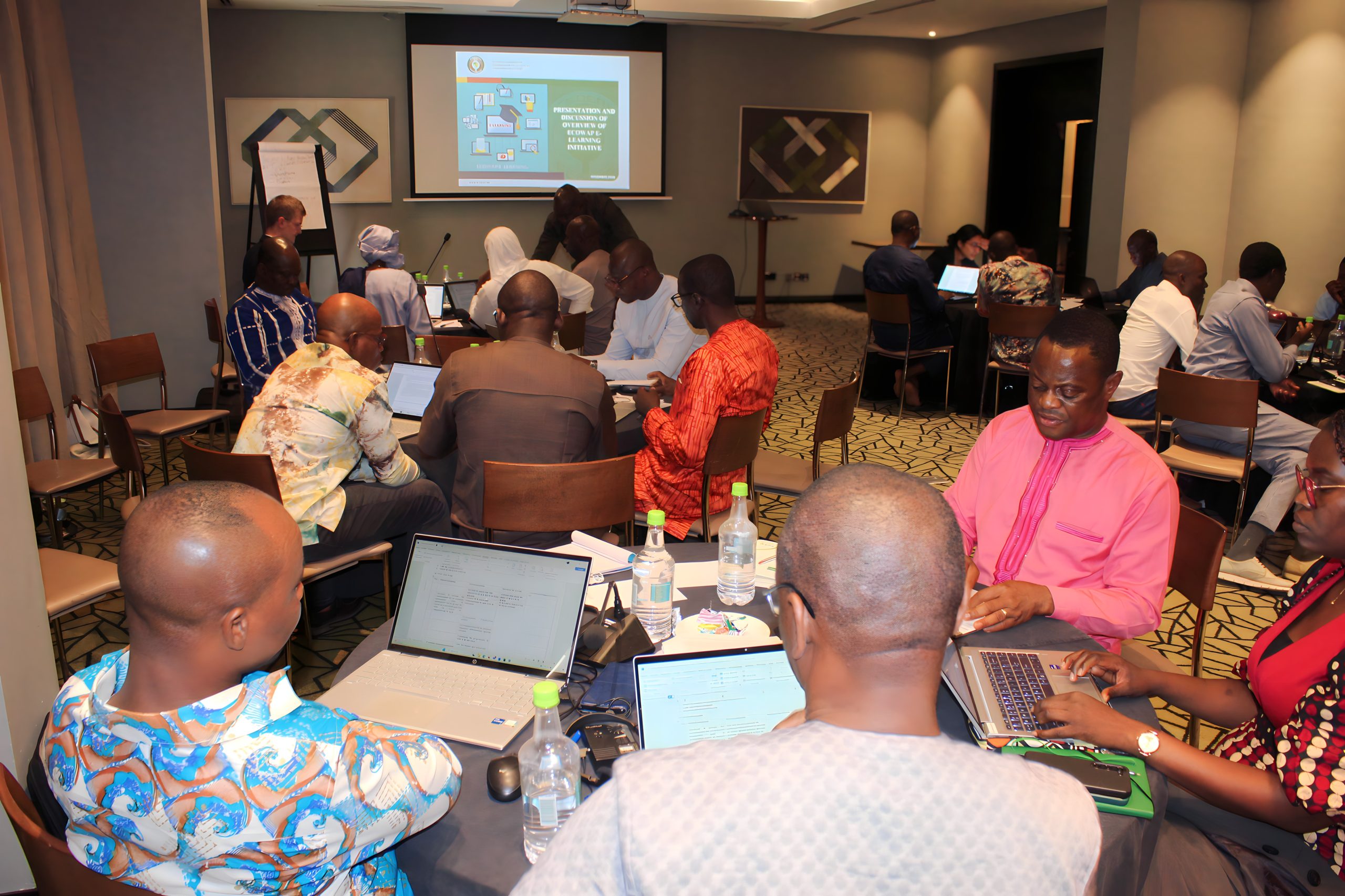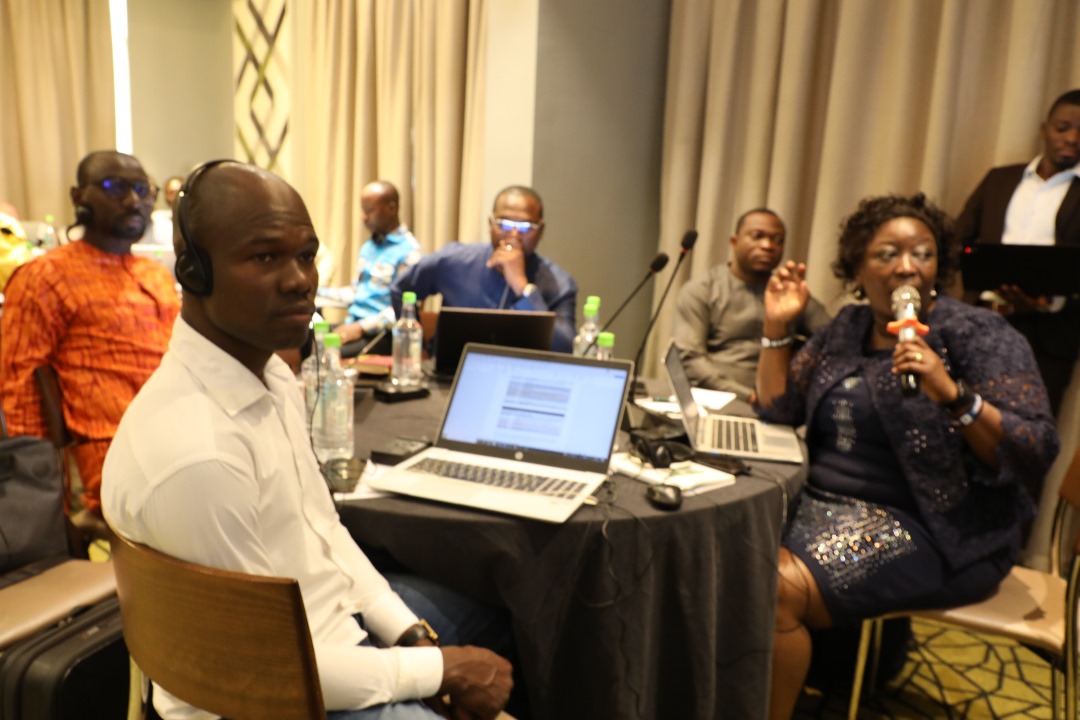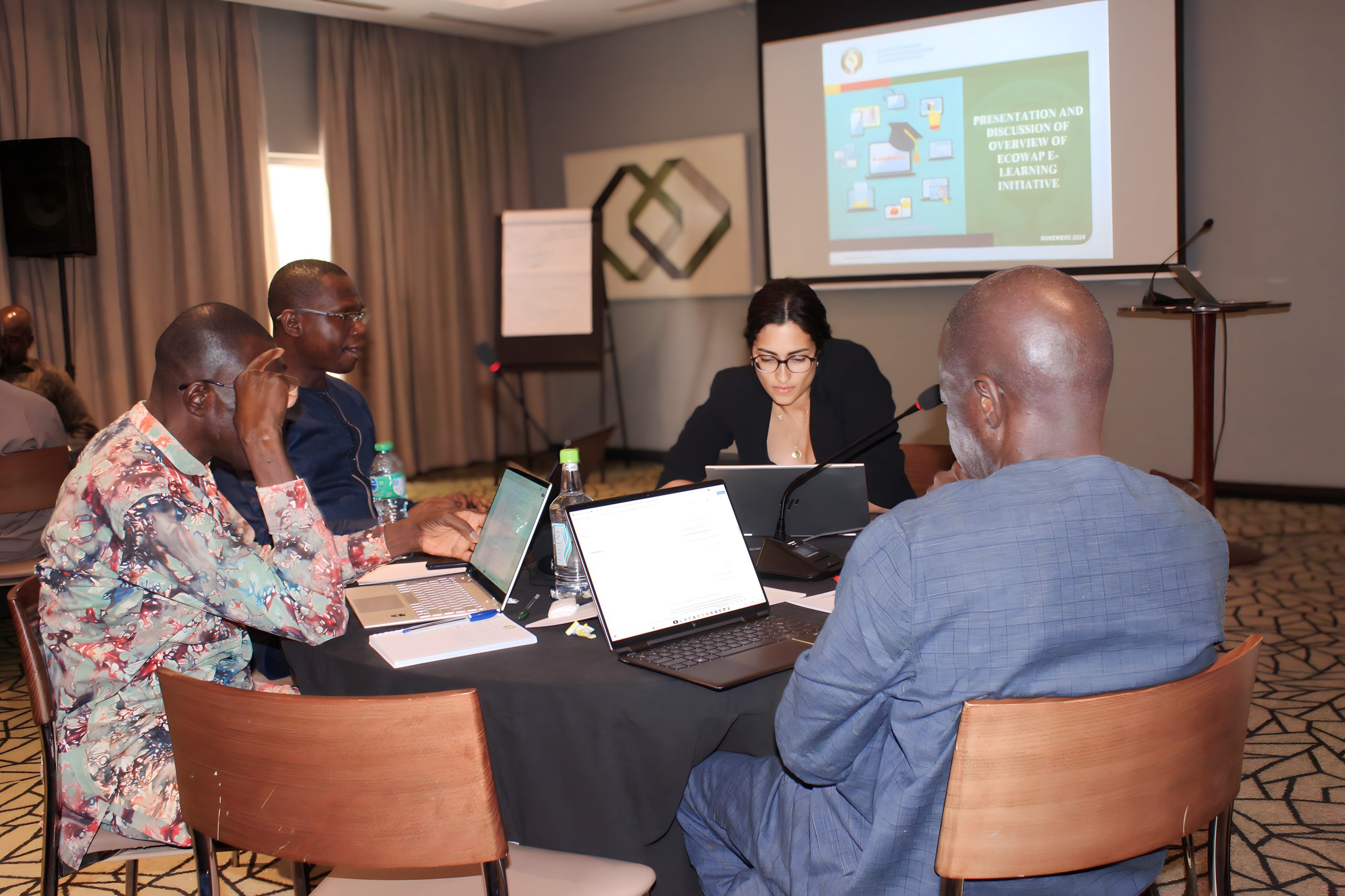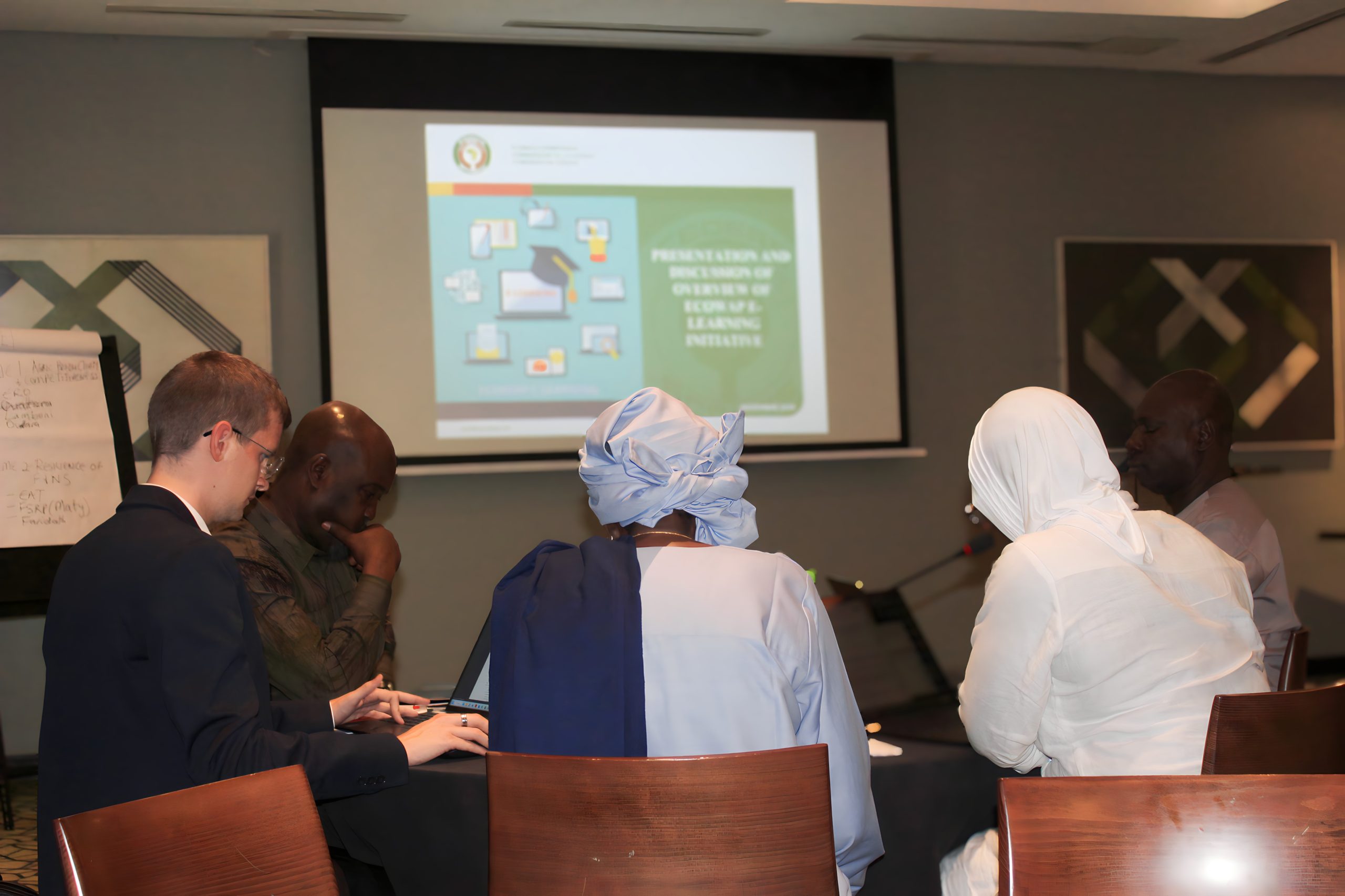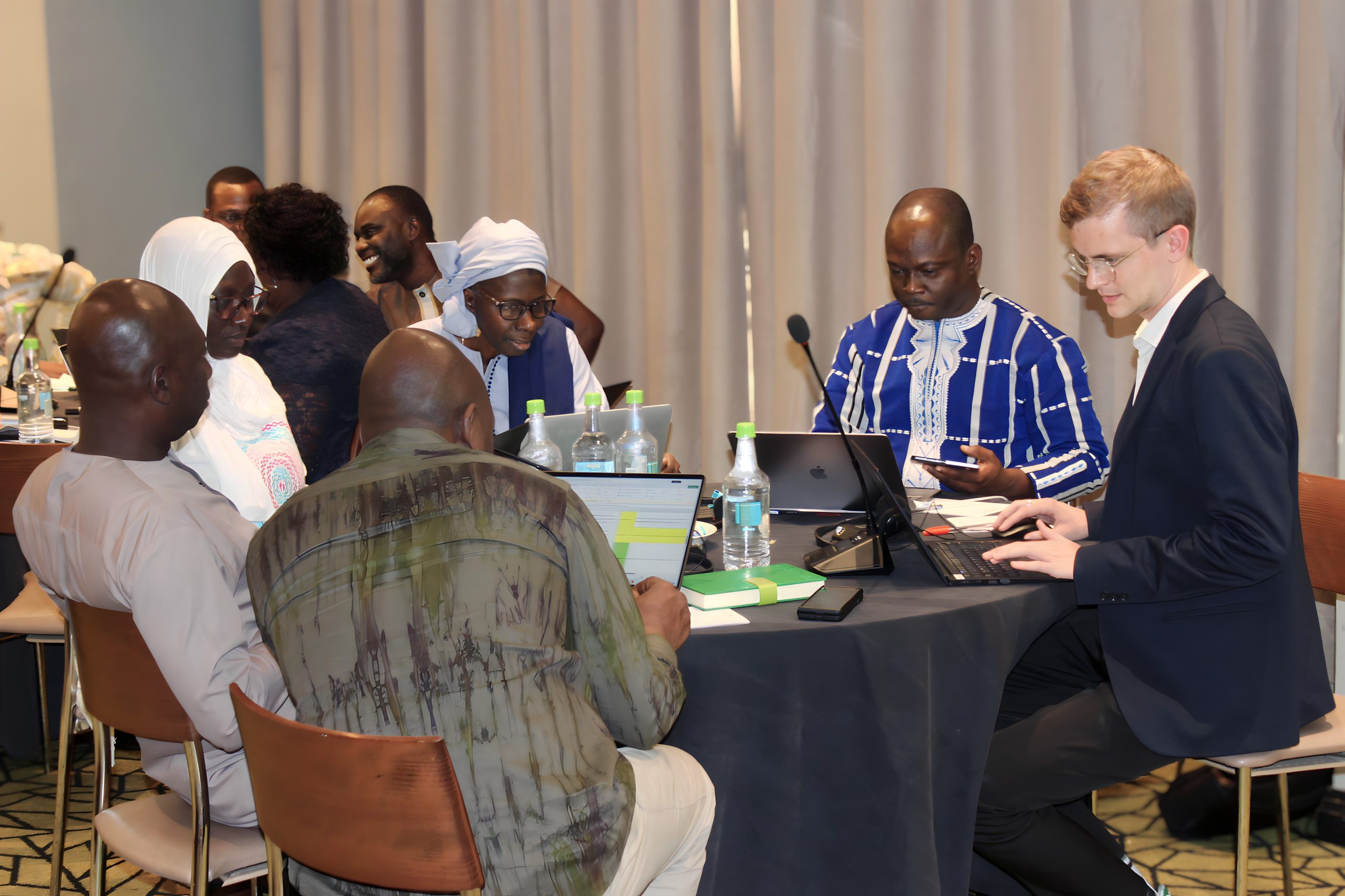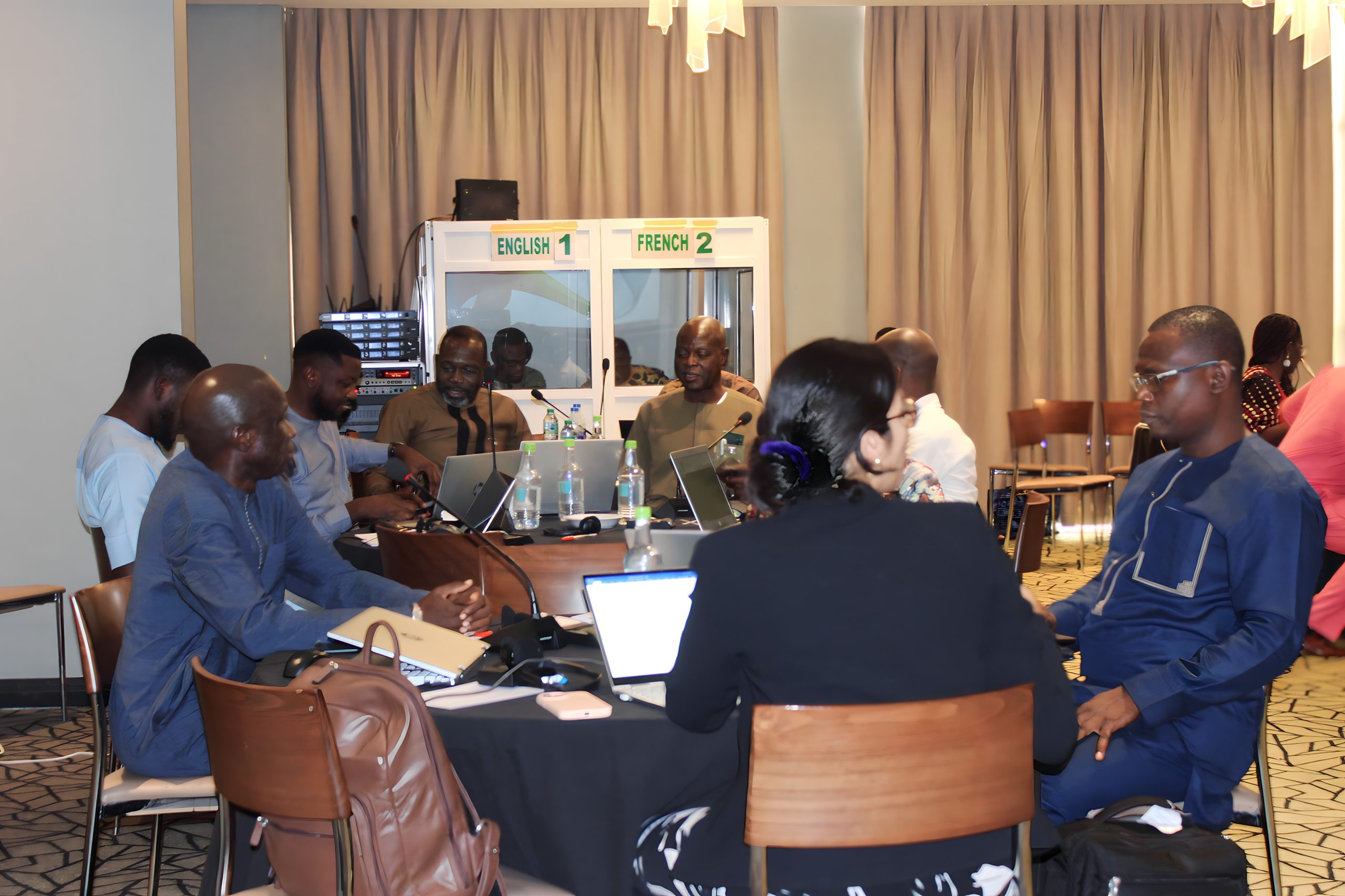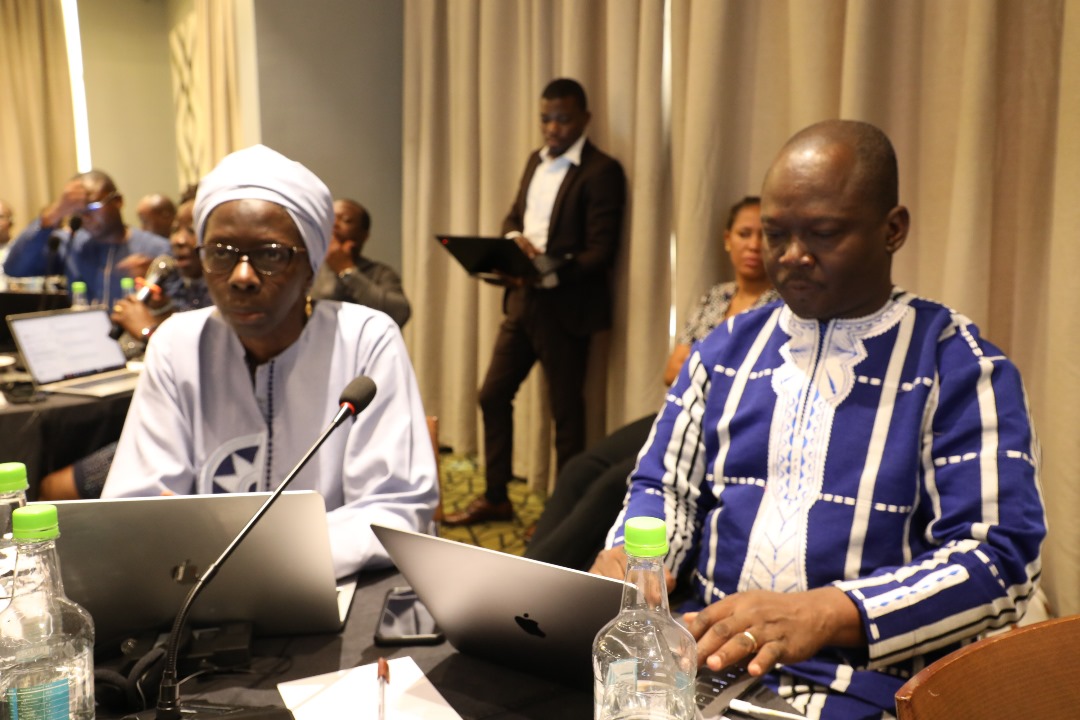ECOWAS Hosts Workshop to Design ECOWAP E-Learning Platform, Addressing Agricultural Knowledge Gaps to Empower Rural African Farmers in West Africa
18 Nov, 2024The ECOWAS Commission hosted an innovative E-Learning Initiative to conceptualize the ECOWAS Agricultural Policy (ECOWAP) E-Learning platform. Held from the 11th to 15th November 2024 in Lagos, Nigeria, the workshop aims to create a learning environment for stakeholders in the sector especially rural African farmers with practical training and reliable information on effective farming techniques. This initiative by about 30 experts and project and programme coordinators from the Directorate of Agriculture and Rural Development (DARD) and the Regional Agency for Agriculture and Food (RAAF), targets underserved farming communities that lack access to traditional agricultural knowledge and practices in West Africa.
In his opening address, the Director of Agriculture and Rural Development, Mr Alan Sy Traore expressed his enthusiasm for the project and stated that farmers are the backbone of our economies, and deserve easy access to knowledge, resources, and innovations that can enhance their productivity and resilience. He also said that the platform will not only connect them to critical information but also empower communities across the region to adapt and thrive. He urged the experts to develop insights and expertise to shape a platform that will serve as a lasting resource for the agricultural sector in West Africa.
The Acting Executive Director of the Regional Agency for Agriculture and Food, Mr. Zongo also said that addressing the information gap is paramount to fostering resilient agricultural systems in West Africa, stating that Platform will play a pivotal role in equipping farmers and agricultural stakeholders with the knowledge they need to adapt, grow, and thrive in an evolving agricultural landscape.
The Programme Officer of ECOWAP/CAADP Monitoring and Evaluation, Mrs. Fatmata L. SEIWOH addressed the issues faced by farmers, pointing out that access to trustworthy information is one of the biggest challenges faced by African farmers. She highlighted how farmers find it difficult to maintain soil health and boost production without understanding current techniques and sustainable practices.
During the five-day workshop, experts began with an in-depth needs assessment, aimed at aligning the platform’s design with the requirements of various user groups, including farmers, agricultural extension officers, and policymakers. With user needs clarified, participants moved on to crafting content strategies that cater to the platform’s diverse audiences.
A collaborative design session by the participants was conducted to define the platform’s architecture and user interface, ensuring ease of use, accessibility, and compatibility with existing ECOWAS systems, with sessions devoted to data sharing and resource integration.
Based on the recommendations by the experts, rural farmers and young agricultural enthusiasts will be able to access both free and low-cost courses, featuring video, audio, and illustrative tutorials on fundamental practices like producing gari and tapioca, among others which will be facilitated by experienced agricultural instructors.
Farmers and young trainees will have the option to participate in certified courses through different mediums to build a workforce of informed and capable agricultural practitioners and also provide real-world insights tailored for small-scale farming operations. ECOWAS expects to finalize a comprehensive roadmap, ensuring that the ECOWAP E-Learning Platform aligns with the unique agricultural needs of the region.
Concluding the workshop, the Acting Executive Director of RAAF expressed his gratitude to all participants for their commitment and expressed his confidence that the platform will not only meet the needs of stakeholders but also transform West Africa’s agricultural landscape where knowledge is accessible to every farmer across the region.



